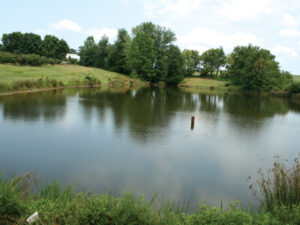Like other languages, English has evolved over the years. Many of its older terminologies are nearly obsolete in the modern vocabulary. However, some terms have stood the test of time. One such phrase is “a mess of fish.” You might have heard it, especially if you are familiar with fishing
Like other languages, English has evolved over the years. Many of its older terminologies are
nearly obsolete in the modern vocabulary. However, some terms have stood the test of time.
One such phrase is “a mess of fish.” You might have heard it, especially if you are familiar with fishing.
Although the phase may sound somewhat senseless, it has a brief history and meaning. Let’s uncover the origins and meaning of a mess of fish in this detailed guide!
What Does A Mess of Fish Mean?
A mess of fish refers to enough fish to feed an entire family. It is generally tossed around in
subjects related to self-sufficiency. However, there are no described metrics to determine the exact number of fish.
Thus, its exact definition and number is unknown. The only way to determine is if the quantity is enough to feed a family and distribute it to someone outside who needs it. This term holds
similarities to expressions like mess of greens or mess of peas.
There are also books written on this subject, like “How to clean a mess of fish without making a mess of fish.” It contains topics about cooking, freezing, packing, and caring for fish. Similarly, the term has many other references throughout pop culture and history.
Origins Of A Mess of Fish
According to several studies, the term mess of fish comes from France. The French word “mes” refers to a portion of food. Generally, this term is used with the Latin verb “mittere.” It means “to put” or “to send.” Thus, the combination would refer to “a meal put on/sent to the table.”
However, many reports link the term’s roots to World War 1 and 2. According to this history, a
group of 3 or 4 soldiers would join together to share the resources provided by the army. These soldier groups were referred to as “mess mates.” And hence, the term mess started meaning enough food to feed a group of 3 or 4 individuals.
Many old fishers used to call a mess of fish when they caught big fish. These “oldtimers”
referred to their catch as “big ones.” Many claim that their fathers, uncles, or grandfathers felt
proud after catching a mess of fish. They believed they had caught enough food to feed an
extensive family. People also state their older relatives whined about the fish that got away.
Conclusion
Regardless of its meaning, a mess of fish holds a special place in Western culture and vocabulary. It brings back memories of old fish hunters and the environment created at that
time. This phrase also emphasizes the importance of self-sufficiency. It means having enough meals to feed your family and some extra to distribute.
The latter part can be replaced with storing the extra food for upcoming harsh seasons. Either way, the rich meaning and history of a mess of fish make it one of the most extraordinary terms in the English language.

